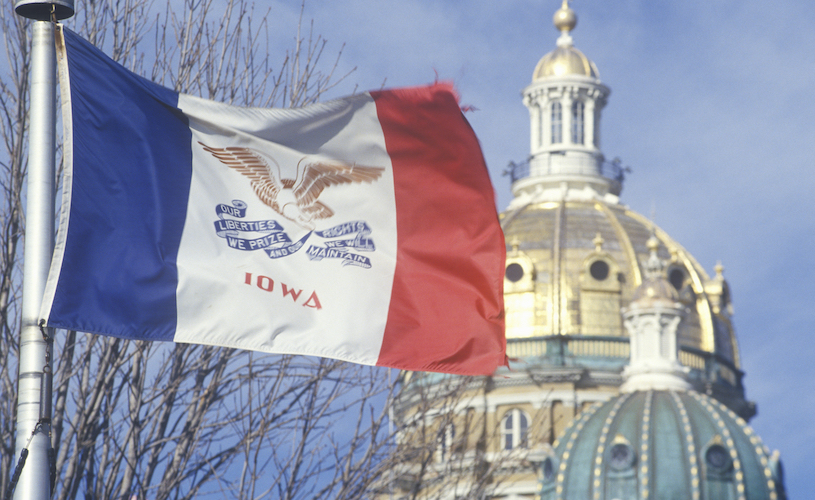
DES MOINES, Iowa (LifeSiteNews) — The Iowa Supreme Court ruled 4-3 on Friday that Iowa may enforce its ban on aborting babies with detectable heartbeats, albeit with some confusion as to when exactly a lower court’s injunction will be lifted.
In July 2023, Republican Gov. Kim Reynolds signed a law banning abortion starting at around six weeks, with exceptions for rape, incest, allegedly fatal “fetal abnormalities,” and supposed threats to the mother’s life.
Direct abortion is always gravely immoral and never needed nor ethically justified to save a mother’s life.
Iowa already had such a law on the books since 2018, but the state’s highest court had deadlocked on its legality, with a 3-3 vote that resulted in it continuing to be blocked from enforcement. Three argued that the law should be allowed to take effect in light of the U.S. Supreme Court overturning Roe v. Wade the year before, and three held that, as Justice Thomas Waterman claimed, it would “bypass the legislature” to let an act of the legislature take effect and that “legislative reenactment” should be required to “assur[e] that a current legislative majority supports the statutory restriction on liberty.”
In response, Reynolds filed an appeal of the ruling and called a special legislative session to pass the heartbeat ban again, giving the court a “clear answer” as to the will of the legislature and declaring that the “voices of Iowans and their democratically elected representatives cannot be ignored any longer, and justice for the unborn should not be delayed.”
This week, the Des Moines Register reports, Justice Matthew McDermott wrote for a narrow majority that abortion restrictions are now constitutional as long as the state shows a “rational basis” for them and that in light of this new standard, challengers “cannot show a likelihood of success on the merits.”
“We thus hold that Planned Parenthood is not entitled to a temporary injunction blocking enforcement of the fetal heartbeat statute,” the court ruled. “We reverse the order granting the temporary injunction and remand the case for the district court to dissolve the temporary injunction and continue with further proceedings.”
The Register notes that the decision left some ambiguity as to whether the dissolution was immediate or will not take effect until the lower court acts on the justices’ direction in a matter of weeks. The Iowa chapter of the American Civil Liberties Union (ACLU), which represented the abortion industry plaintiffs, is taking the position that it means the latter.
“There is no right more sacred than life, and nothing more worthy of our strongest defense than the innocent unborn,” Reynolds reacted. “Iowa voters have spoken clearly through their elected representatives, both in 2018 when the original heartbeat bill was passed and signed into law, and again in 2023 when it passed by an even larger margin. I’m glad that the Iowa Supreme Court has upheld the will of the people of Iowa.”
“As the heartbeat bill finally becomes law, we are deeply committed to supporting women in planning for motherhood, and promoting fatherhood and its importance in parenting,” she added, though she reiterated her support for embryo-destroying in vitro fertilization.
“Today’s Supreme Court decision to uphold Iowa’s heartbeat law sends a loud and clear message: Iowa stands for life,” said Iowa Republican Attorney General Brenna Bird. “As Attorney General, I have been so grateful to defend Iowa’s heartbeat law and protect the unborn. While today’s decision is a landmark victory, we know that there is work left to be done. We will keep working to support Iowa families, parents, and the unborn as the fight for life continues.”
Fourteen states currently ban all or most abortions, and another three currently ban abortion at around six weeks, not including Iowa. But the abortion lobby is working feverishly to cancel out those deterrent effects by deregulated interstate distribution of abortion pills, legal protection and financial support of interstate abortion travel, constructing new abortion facilities near borders shared by pro-life and pro-abortion states, making liberal states sanctuaries for those who want to evade or violate the laws of more pro-life neighbors, and embedding abortion “rights” in state constitutions.

